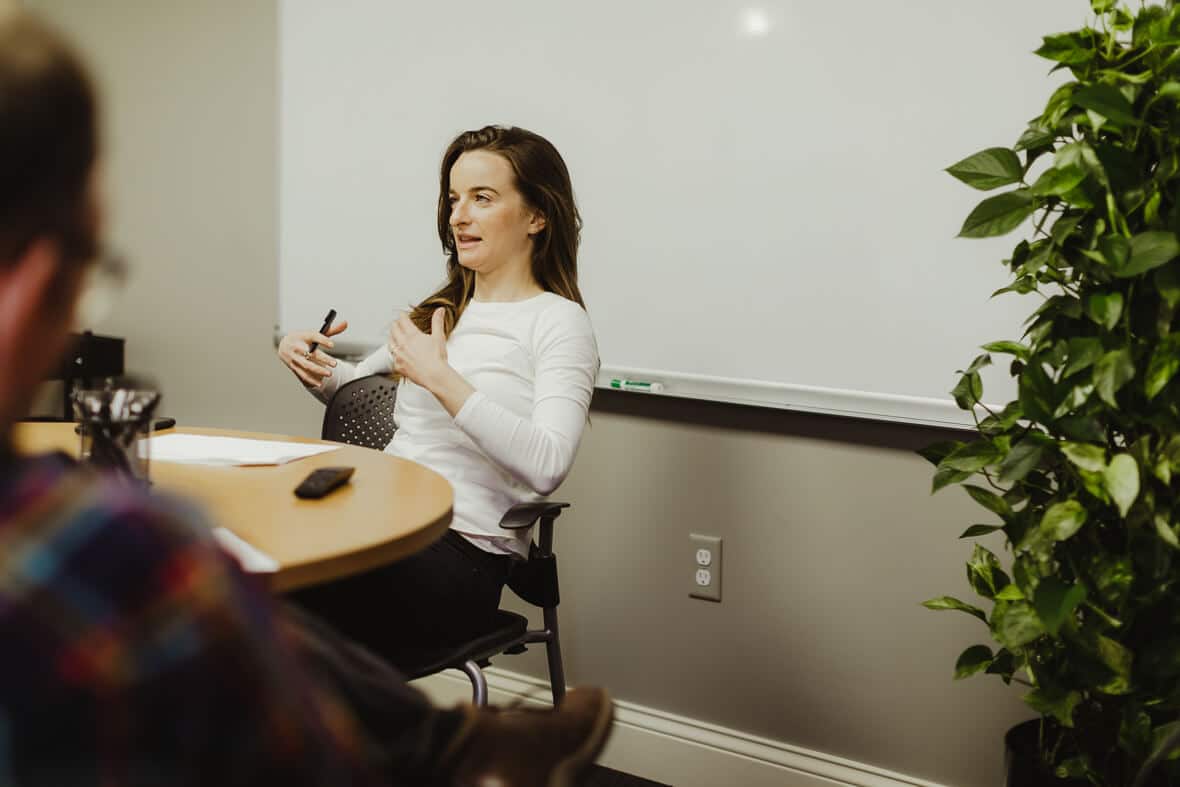Article summary
Consulting can be a scary business. Folks bring unique, challenging problems and ask you to solve them within a tight timeline. If you’re a planner and you like knowing what the path to completion looks like, this can be stressful.
Learning to work confidently in these spaces is one of the great gifts I’ve received from my time at Atomic. I recommend that new developers start their careers in consulting specifically to gain this sense of agency and self-assurance.
Why is it so important to build confidence? In short, it allows you to embrace unfamiliar challenges. Folks often let great career opportunities pass by because they fear failure. This is unfortunate, as these uncomfortable spaces often provide the greatest growth. Confidence will allow you to capitalize on these opportunities and move your career forward.
How It Works
So, how does this work exactly? How can you learn to feel confident when you don’t know what a problem’s solution will look like?
1. Look for the forest, not the trees.
The first step is to realize that you won’t succeed or fail based on individual tasks. Your ability to collaborate with a team, prioritize work, and validate your deliverables will drive success.
These skills, fortunately, are highly transferable from project to project. While the individual details of a particular feature will vary, your overall approach can remain quite consistent.
Similarly, you’ll find that there are common types of problems that we solve with software. The particular solutions will vary, but many concepts, patterns, and pitfalls will be similar from project to project. Learning solid fundamental approaches to managing data and control flow in code will pay off over and over.
2. Learn to learn efficiently.
The next step is to realize that your core skill set is your ability to learn efficiently. You’ll carry this with you as the platforms, tools, and problems change. Each new project will improve your ability to learn—you’ll have more and more data points to leverage when you encounter an unfamiliar challenge.
With time, your ability to quickly add new tools to your skillset will become just as valuable as the knowledge you’ve accumulated along the way.
3. Get comfortable asking for help.
A third key realization is that it’s okay to rely on your team for help! It’s easy to feel inadequate when we need to go to teammates for assistance, but this is a misconception to leave behind. We learn best together, and we work most efficiently when we leverage the team’s knowledge.
It becomes easier to reach out once you learn that most people really enjoy lending expertise or perspective. There’s an art to knowing who, when, and how to ask for help. Building this skillset can really expand the scope of the problems you can handle.
4. Learn to set up safeguards.
A great deal of the stress of working in unfamiliar territory comes from the worry that you’ll make mistakes. Consultant work has helped me learn to efficiently and effectively validate software, and that skillset allows me to move forward confidently with unfamiliar platforms and frameworks.
You may not be able to anticipate every use case you’ll need to handle, but it’s a huge confidence boost to be able to assert that the use cases you have identified are working cleanly.
5. Build a track record of success.
The last piece is that you’ll learn to believe in your track record. Sure, a new project may be a bit out of your comfort zone. It might require some learning, and maybe some new tools. But you’ve been there before, you’ve found success in similar situations, and you’ve learned how to take the valuable first steps.
That feeling of discomfort will bother you less and less as you learn to recognize it as a regular step along the way to learning and success.
I’ve gained a great deal from working as a software consultant. I especially value the confidence I’ve gained in the process. Now I can engage comfortably with unfamiliar problems under pressure, and that allows me to take on challenges that might otherwise have been out of my reach.

